Isaiah
Published: Oct 2006
Price range: £15.00 through £35.00
Peter Miscall's commentary on Isaiah was among the first volumes in the series Readings published by JSOT Press in 1993. Sheffield Phoenix Press is now relaunching the series, under the editorship of John Jarick, with a revised reprint of Miscall's work (including a new preface), and an entirely new volume on Haggai by Tim Meadowcroft.
The aim of the series remains to present compact literary readings of the biblical books, unencumbered by the paraphernalia of traditional criticism and alert to the impact of literary studies on biblical interpretation. Each contributor to the series approaches their text from their own personal literary position.
In this fine and characteristic study, Miscall concentrates especially on the play of images in the prophetic book, their interweaving and constant intertextuality.
Isaiah
Price range: £15.00 through £35.00
Peter Miscall's commentary on Isaiah was among the first volumes in the series Readings published by JSOT Press in 1993. Sheffield Phoenix Press is now relaunching the series, under the editorship of John Jarick, with a revised reprint of Miscall's work (including a new preface), and an entirely new volume on Haggai by Tim Meadowcroft.
The aim of the series remains to present compact literary readings of the biblical books, unencumbered by the paraphernalia of traditional criticism and alert to the impact of literary studies on biblical interpretation. Each contributor to the series approaches their text from their own personal literary position.
In this fine and characteristic study, Miscall concentrates especially on the play of images in the prophetic book, their interweaving and constant intertextuality.
Empire and Apocalypse: Postcolonialism and the New Testament
Published: Oct 2006
Price range: £18.50 through £37.00
In Empire and Apocalypse Stephen Moore offers us the most complete introduction yet to the emergent field of postcolonial biblical criticism. It includes an indispensable in-depth introduction to postcolonial theory and criticism together with a detailed survey of postcolonial biblical criticism.
Next come three substantial exegetical chapters on the Gospels of Mark and John and the Book of Revelation, which together demonstrate how postcolonial studies provide fresh conceptual resources and critical strategies for rethinking early Christianity's complex relations to the Roman Empire. Each of these three texts, to different degrees, Moore argues, mimic and replicate fundamental facets of Roman imperial ideology even while resisting and eroding it.
The book concludes with an amply annotated bibliography whose main section provides a comprehensive listing of work done to date in postcolonial biblical criticism.
Empire and Apocalypse: Postcolonialism and the New Testament
Price range: £18.50 through £37.00
In Empire and Apocalypse Stephen Moore offers us the most complete introduction yet to the emergent field of postcolonial biblical criticism. It includes an indispensable in-depth introduction to postcolonial theory and criticism together with a detailed survey of postcolonial biblical criticism.
Next come three substantial exegetical chapters on the Gospels of Mark and John and the Book of Revelation, which together demonstrate how postcolonial studies provide fresh conceptual resources and critical strategies for rethinking early Christianity's complex relations to the Roman Empire. Each of these three texts, to different degrees, Moore argues, mimic and replicate fundamental facets of Roman imperial ideology even while resisting and eroding it.
The book concludes with an amply annotated bibliography whose main section provides a comprehensive listing of work done to date in postcolonial biblical criticism.
Voyages in Uncharted Waters: Essays on the Theory and Practice of Biblical Interpretation in Honor of David Jobling
Published: Oct 2006
£50.00
This volume honours the work of David Jobling, the distinguished Professor of Old Testament Language and Literature at St Andrew's College, Saskatoon, Canada. Jobling has been noted for his adventurous forays into the theory and practice of biblical interpretation, especially of the Hebrew Bible, and for his interdisciplinary bridge-building. The volume is divided into three sections corresponding to three of Jobling's principal interests, each section being prefaced with an introduction to his work in that area by the editors.
Section 1 is on Post-Structuralism, with contributions by Gary Phillips, George Aichele, Francis Landy, Robert Culley and Matthew Mitchell. In Section 2, on Ideological Criticism, the authors are Roland Boer, David Gunn, Volker Greifenhagen and Tina Pippin. Section 3, on Global Readings, contains papers by Gerald West, Jione Havea, Ed Conrad and Norman Habel.
The Festschrift concludes with personal tributes by Christopher Lind and Norman Gottwald.
Voyages in Uncharted Waters: Essays on the Theory and Practice of Biblical Interpretation in Honor of David Jobling
£50.00
This volume honours the work of David Jobling, the distinguished Professor of Old Testament Language and Literature at St Andrew's College, Saskatoon, Canada. Jobling has been noted for his adventurous forays into the theory and practice of biblical interpretation, especially of the Hebrew Bible, and for his interdisciplinary bridge-building. The volume is divided into three sections corresponding to three of Jobling's principal interests, each section being prefaced with an introduction to his work in that area by the editors.
Section 1 is on Post-Structuralism, with contributions by Gary Phillips, George Aichele, Francis Landy, Robert Culley and Matthew Mitchell. In Section 2, on Ideological Criticism, the authors are Roland Boer, David Gunn, Volker Greifenhagen and Tina Pippin. Section 3, on Global Readings, contains papers by Gerald West, Jione Havea, Ed Conrad and Norman Habel.
The Festschrift concludes with personal tributes by Christopher Lind and Norman Gottwald.
Timothy’s Task, Paul’s Prospect: A New Reading of 2 Timothy
Published: Sep 2006
£55.00
In this challenging book, Craig Smith propounds the novel thesis that the famous lines in 2 Timothy 4 where 'Paul' announces that the time of his departure has come have been misunderstood. This is no farewell speech, Smith avers, and Paul is not intending to pass on the baton to his younger colleague, Timothy.
Deploying epistolary analysis and rhetorical criticism, Smith shows that these verses (4:1-8) do not have the literary structure or the vocabulary of a testament or a farewell; rather, they are a 'charge', an authoritative command, comprised of five specific formal elements. This charge form is found also in the exorcism command and in some magical texts, Christian and non-Christian.
From this perspective, Paul's being poured out as a libation is his experience of preaching to the Gentiles at his first trial, his 'departure' is the imminent release from prison that he is expecting, the fight he has fought and the race he has finished are his trial that he has withstood. Far from appointing Timothy as his successor, he is contemplating a continued companionship and collegiality as they continue their ministry together.
Timothy’s Task, Paul’s Prospect: A New Reading of 2 Timothy
£55.00
In this challenging book, Craig Smith propounds the novel thesis that the famous lines in 2 Timothy 4 where 'Paul' announces that the time of his departure has come have been misunderstood. This is no farewell speech, Smith avers, and Paul is not intending to pass on the baton to his younger colleague, Timothy.
Deploying epistolary analysis and rhetorical criticism, Smith shows that these verses (4:1-8) do not have the literary structure or the vocabulary of a testament or a farewell; rather, they are a 'charge', an authoritative command, comprised of five specific formal elements. This charge form is found also in the exorcism command and in some magical texts, Christian and non-Christian.
From this perspective, Paul's being poured out as a libation is his experience of preaching to the Gentiles at his first trial, his 'departure' is the imminent release from prison that he is expecting, the fight he has fought and the race he has finished are his trial that he has withstood. Far from appointing Timothy as his successor, he is contemplating a continued companionship and collegiality as they continue their ministry together.
Jesus as Prophet in the Fourth Gospel
Published: Sep 2006
£60.00
All the Gospels recognize Jesus as a prophet, but it is above all in the Gospel of John that this dimension of his work is stressed. Cho explores the many elements in the Gospel that add up to what can rightly be called a prophetic Christology. He shows that many of Jesus' words and some of his deeds are prophetic in character, and that Jesus is not just a prophet like the Old Testament prophets before him but the prophet like Moses expected for the times of the End.
Identifying Jesus as a prophet, Cho goes on to argue, is important within the narrative of the Gospel of John: it is a way-station on a journey of discovery towards a more profound appreciation of Jesus' identity. Recognizing Jesus as prophet is for John an initial step in coming to faith, and, in the overall Christology of the Gospel of John a significant element in attaining a balance between a high and a low Christology.
The construction of Jesus as prophet, though well evidenced in the Gospel, has received remarkably little attention in recent scholarly study, and Cho's work is a much-needed full-scale study of the theme.
Jesus as Prophet in the Fourth Gospel
£60.00
All the Gospels recognize Jesus as a prophet, but it is above all in the Gospel of John that this dimension of his work is stressed. Cho explores the many elements in the Gospel that add up to what can rightly be called a prophetic Christology. He shows that many of Jesus' words and some of his deeds are prophetic in character, and that Jesus is not just a prophet like the Old Testament prophets before him but the prophet like Moses expected for the times of the End.
Identifying Jesus as a prophet, Cho goes on to argue, is important within the narrative of the Gospel of John: it is a way-station on a journey of discovery towards a more profound appreciation of Jesus' identity. Recognizing Jesus as prophet is for John an initial step in coming to faith, and, in the overall Christology of the Gospel of John a significant element in attaining a balance between a high and a low Christology.
The construction of Jesus as prophet, though well evidenced in the Gospel, has received remarkably little attention in recent scholarly study, and Cho's work is a much-needed full-scale study of the theme.
Creation and Creativity: From Genesis to Genetics and Back
Published: Aug 2006
Price range: £18.50 through £40.00
The idea of creation and creativity is among the most powerful and pervasive of metaphors bequeathed to the modern world by the scriptures of Judaism, Christianity and Islam.
Twelve specialists here explore the original sources and contemporary manifestations of the theme in both high and low culture, from the Book of Genesis to James Joyce's Ulysses, Children of Gebalawi by the Egyptian novelist Naguib Mahfouz, and the Polish poetry of Wislawa Szymborska, and to popular films, such as Bruce Almighty and Animatrix, and animation films for children.
Even current debates on genetics and ecology and the public exhibition of plastinated human bodies invoke these same themes, and make this volume a topical contribution to cultural studies today.
This is the first volume of the Amsterdam Studies in the Bible and Religion (ed. Athalya Brenner), a sub-series of The Bible in the Modern World .
Creation and Creativity: From Genesis to Genetics and Back
Price range: £18.50 through £40.00
The idea of creation and creativity is among the most powerful and pervasive of metaphors bequeathed to the modern world by the scriptures of Judaism, Christianity and Islam.
Twelve specialists here explore the original sources and contemporary manifestations of the theme in both high and low culture, from the Book of Genesis to James Joyce's Ulysses, Children of Gebalawi by the Egyptian novelist Naguib Mahfouz, and the Polish poetry of Wislawa Szymborska, and to popular films, such as Bruce Almighty and Animatrix, and animation films for children.
Even current debates on genetics and ecology and the public exhibition of plastinated human bodies invoke these same themes, and make this volume a topical contribution to cultural studies today.
This is the first volume of the Amsterdam Studies in the Bible and Religion (ed. Athalya Brenner), a sub-series of The Bible in the Modern World .
James Rendel Harris: New Testament Autographs and Other Essays
Published: Aug 2006
£60.00
James Rendel Harris (1852 —1941) was one of the most prolific and influential New Testament scholars of his time. He opened new paths in textual criticism, brought to light hitherto lost early Christian writings and gathered major collections of Syriac manuscripts and Greek papyri.
An introductory essay sketches Rendel Harris's life and works, while the rest of the book collects published essays and unpublished lectures and letters written by Rendel Harris over a span of 50 years, providing an essential picture of his scholarship. The papers include a lively and first-hand account of the controversies over the Hort —Westcott Greek New Testament; the suggestion of using mathematical devices for reconstructing New Testament autographs; the finding of the only known Diatessaronic reading in a Greek New Testament; the account of Rendel Harris's initial 'discovery' of testimonia collections and his two last daring essays on the topic; one of the first proposals of a wisdom hymn lying behind John's prologue (including the author's unpublished notes for a future edition); and, finally, an entertaining guide for the manuscript hunter.
The personal correspondence at the end of the volume throws light on the driving forces of Rendel Harris's scholarship and on his own assessment of his work on the testimonia. The goal of his studies was to draw attention to new or little-explored topics and to provoke his colleagues to carry out fresh research on what they had overlooked. This collection aims at the same goal.
James Rendel Harris: New Testament Autographs and Other Essays
£60.00
James Rendel Harris (1852 —1941) was one of the most prolific and influential New Testament scholars of his time. He opened new paths in textual criticism, brought to light hitherto lost early Christian writings and gathered major collections of Syriac manuscripts and Greek papyri.
An introductory essay sketches Rendel Harris's life and works, while the rest of the book collects published essays and unpublished lectures and letters written by Rendel Harris over a span of 50 years, providing an essential picture of his scholarship. The papers include a lively and first-hand account of the controversies over the Hort —Westcott Greek New Testament; the suggestion of using mathematical devices for reconstructing New Testament autographs; the finding of the only known Diatessaronic reading in a Greek New Testament; the account of Rendel Harris's initial 'discovery' of testimonia collections and his two last daring essays on the topic; one of the first proposals of a wisdom hymn lying behind John's prologue (including the author's unpublished notes for a future edition); and, finally, an entertaining guide for the manuscript hunter.
The personal correspondence at the end of the volume throws light on the driving forces of Rendel Harris's scholarship and on his own assessment of his work on the testimonia. The goal of his studies was to draw attention to new or little-explored topics and to provoke his colleagues to carry out fresh research on what they had overlooked. This collection aims at the same goal.
I Have Written to the King, My Lord’: Secular Analogies for the Psalms
Published: Jun 2006
Price range: £12.95 through £35.00
The psalms in the Hebrew Bible have often been compared with the religious texts of Mesopotamia, Egypt and Canaan. Roger Tomes shows, in this incisive monograph, how the letters of the ancient Near East, from Mari, Amarna, Ugarit, Nimrud and Nineveh, are an equally rewarding analogue.
In them we find suppliants, caught in crisis situations, appealing to their rulers; they use the same arguments to persuade them to act as the psalmists in their appeals to God: protestations of innocence, confession of faults, promises of loyalty, descriptions of plight, appeal to the other's own interests, direct reproaches and quotation of the reproaches of enemies, and expressions of dependence. These are parallels that have much to teach us about the social position of the psalmists and their relationship to the cult.
I Have Written to the King, My Lord’: Secular Analogies for the Psalms
Price range: £12.95 through £35.00
The psalms in the Hebrew Bible have often been compared with the religious texts of Mesopotamia, Egypt and Canaan. Roger Tomes shows, in this incisive monograph, how the letters of the ancient Near East, from Mari, Amarna, Ugarit, Nimrud and Nineveh, are an equally rewarding analogue.
In them we find suppliants, caught in crisis situations, appealing to their rulers; they use the same arguments to persuade them to act as the psalmists in their appeals to God: protestations of innocence, confession of faults, promises of loyalty, descriptions of plight, appeal to the other's own interests, direct reproaches and quotation of the reproaches of enemies, and expressions of dependence. These are parallels that have much to teach us about the social position of the psalmists and their relationship to the cult.
Reframing Her: Biblical Women in Postcolonial Focus
Published: Jun 2006
Price range: £15.95 through £35.00
How does one read the story of Sarah and Hagar, or Jezebel and Rahab today, if one is a woman reader situated in a postcolonial society?
This is the question undergirding this work, which considers a selection of biblical texts in which women have significant roles. Employing both a gender and a postcolonial lens, it asks sharp questions both of the interests embedded in the texts themselves and of their impact upon contemporary women readers.
Whereas most postcolonial studies have been undertaken from the perspective of the colonized this work reads the texts from the position of a settler descendant, and is an attempt to engage with the disquietening and challenging questions that reading from such a location raises. Letters from early settler women in New Zealand, contemporary fiction, and personal reminiscence become tools for the task, complementing those traditionally employed in critical biblical readings.
Reframing Her: Biblical Women in Postcolonial Focus
Price range: £15.95 through £35.00
How does one read the story of Sarah and Hagar, or Jezebel and Rahab today, if one is a woman reader situated in a postcolonial society?
This is the question undergirding this work, which considers a selection of biblical texts in which women have significant roles. Employing both a gender and a postcolonial lens, it asks sharp questions both of the interests embedded in the texts themselves and of their impact upon contemporary women readers.
Whereas most postcolonial studies have been undertaken from the perspective of the colonized this work reads the texts from the position of a settler descendant, and is an attempt to engage with the disquietening and challenging questions that reading from such a location raises. Letters from early settler women in New Zealand, contemporary fiction, and personal reminiscence become tools for the task, complementing those traditionally employed in critical biblical readings.
The Michal Affair: From Zimri-Lim to the Rabbis
Published: Jun 2006
Price range: £15.95 through £50.00
This fresh approach to the story of Michal, daughter of Saul and wife of David, juxtaposes three quite different interpretative methods: narratological, historical, and history of traditions.
In his first chapter Bodi offers a subtle political reading of the Michal story, bringing to the fore the power-struggle between Saul and David that forms its main intrigue. Michal's personal tragedy foreshadows that of the Israelite monarchy and prefigures its end. It is a unique phenomenon in ancient Near Eastern literature that the story of a woman should serve as a means of criticizing the abuses of the monarchy and deconstructing the royal ideology.
The second chapter compares the daughters of Saul and the daughters of Zimri-Lim. This eighteenth-century BCE tribal king of Mari offered his two daughters Kirum and Shimatum to the same vassal in order to be able to spy on him. Saul seems to have done something similar with his daughters Merab and Michal, both offered to David. The unhappy marriage of Kirum ended in divorce. Although the announcement of the divorce was made by her husband in a public ceremony, it was prompted by the royal princess —the first example of a divorce initiated by a woman in ancient Near Eastern texts.
The third chapter explores a rich variety of rabbinic interpretations of key moments in the Michal story. Important and often little known observations are drawn from both the Talmuds and from midrashic works such as Abrabanel and anthologies like Midrash Rabbah, Yalqut Shimoni, Meam Loez and Malbim, together with the comments by Rashi and Qimhi.
Both the narratological investigation and the rabbinic interpretations point to David's guilt during his dance in front of the ark. The rabbis indeed attributed the exile of the nation to David's misdeeds. A careful reading of the biblical texts dealing with the figure of David in his relationship with his first wife Michal reaches the same conclusion: He is not exactly the man he pretends to be.
The Michal Affair: From Zimri-Lim to the Rabbis
Price range: £15.95 through £50.00
This fresh approach to the story of Michal, daughter of Saul and wife of David, juxtaposes three quite different interpretative methods: narratological, historical, and history of traditions.
In his first chapter Bodi offers a subtle political reading of the Michal story, bringing to the fore the power-struggle between Saul and David that forms its main intrigue. Michal's personal tragedy foreshadows that of the Israelite monarchy and prefigures its end. It is a unique phenomenon in ancient Near Eastern literature that the story of a woman should serve as a means of criticizing the abuses of the monarchy and deconstructing the royal ideology.
The second chapter compares the daughters of Saul and the daughters of Zimri-Lim. This eighteenth-century BCE tribal king of Mari offered his two daughters Kirum and Shimatum to the same vassal in order to be able to spy on him. Saul seems to have done something similar with his daughters Merab and Michal, both offered to David. The unhappy marriage of Kirum ended in divorce. Although the announcement of the divorce was made by her husband in a public ceremony, it was prompted by the royal princess —the first example of a divorce initiated by a woman in ancient Near Eastern texts.
The third chapter explores a rich variety of rabbinic interpretations of key moments in the Michal story. Important and often little known observations are drawn from both the Talmuds and from midrashic works such as Abrabanel and anthologies like Midrash Rabbah, Yalqut Shimoni, Meam Loez and Malbim, together with the comments by Rashi and Qimhi.
Both the narratological investigation and the rabbinic interpretations point to David's guilt during his dance in front of the ark. The rabbis indeed attributed the exile of the nation to David's misdeeds. A careful reading of the biblical texts dealing with the figure of David in his relationship with his first wife Michal reaches the same conclusion: He is not exactly the man he pretends to be.
The Coming King and the Rejected Shepherd: Matthew’s Reading of Zechariah’s Messianic Hope
Published: Jun 2006
Price range: £15.95 through £60.00
Surprisingly, this is the first full-length study devoted to Matthew's use of Zechariah by way of quotation and allusion. Three times he cites Zechariah (21.5; 26.31; 27.9-10), and on at least eight occasions he alludes to the prophet (23.35; 24.30, 31, 36; 25.31; 26.15, 28, 56).
It is the messianic vision of Zechariah that has appealed to Matthew, with its elements of the restoration of the humble Davidic king, the smiting of the divinely appointed shepherd, the creation of a renewed remnant, and the worship of Yahweh by all nations.
Among the questions Ham undertakes to resolve in this precise and clearly presented monograph are: how much Matthew's reading of Zechariah owes to his Jewish predecessors, how much he is in harmony with other early Christian readers of the prophet, and to what extent his image of Jesus has been shaped by Zechariah's eschatological hopes.
The Coming King and the Rejected Shepherd: Matthew’s Reading of Zechariah’s Messianic Hope
Price range: £15.95 through £60.00
Surprisingly, this is the first full-length study devoted to Matthew's use of Zechariah by way of quotation and allusion. Three times he cites Zechariah (21.5; 26.31; 27.9-10), and on at least eight occasions he alludes to the prophet (23.35; 24.30, 31, 36; 25.31; 26.15, 28, 56).
It is the messianic vision of Zechariah that has appealed to Matthew, with its elements of the restoration of the humble Davidic king, the smiting of the divinely appointed shepherd, the creation of a renewed remnant, and the worship of Yahweh by all nations.
Among the questions Ham undertakes to resolve in this precise and clearly presented monograph are: how much Matthew's reading of Zechariah owes to his Jewish predecessors, how much he is in harmony with other early Christian readers of the prophet, and to what extent his image of Jesus has been shaped by Zechariah's eschatological hopes.

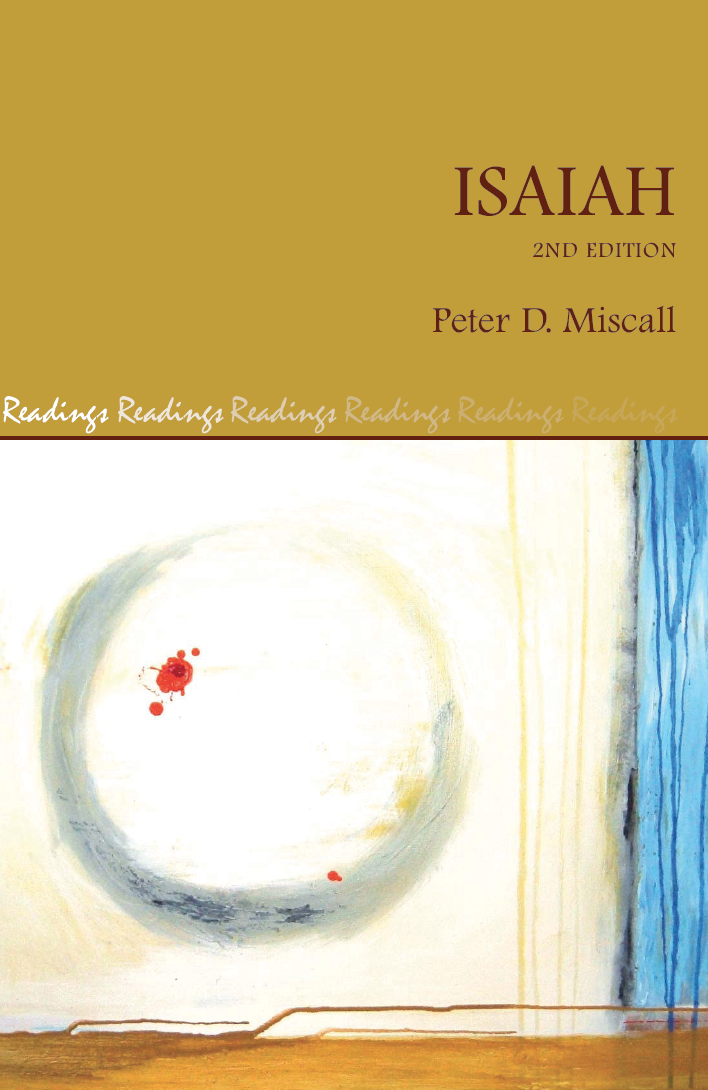



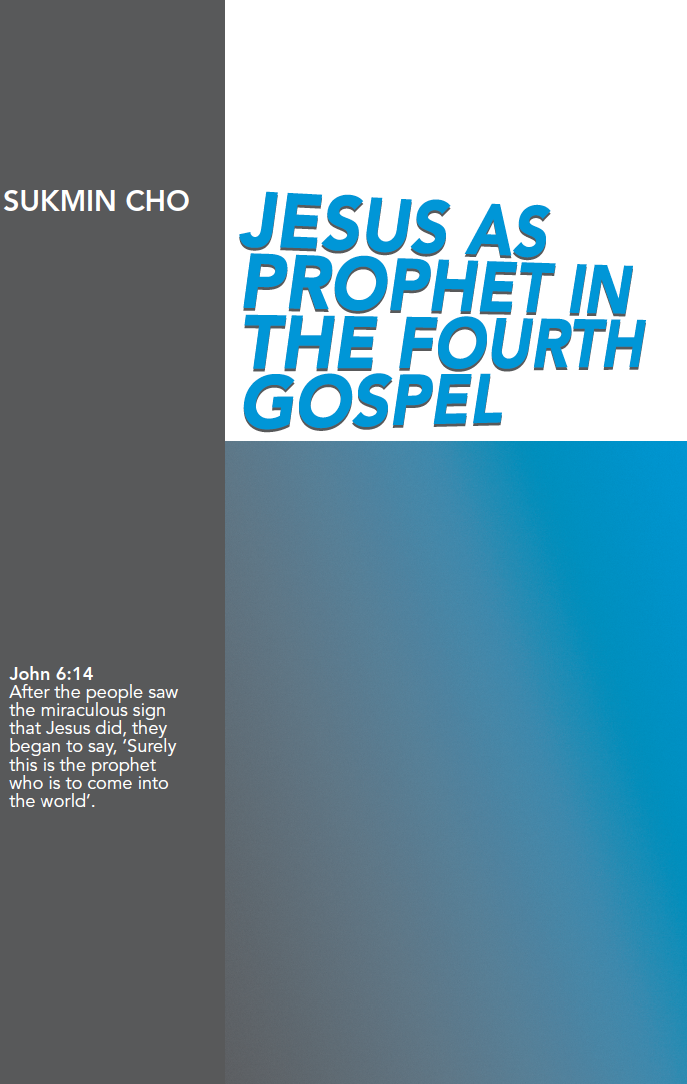

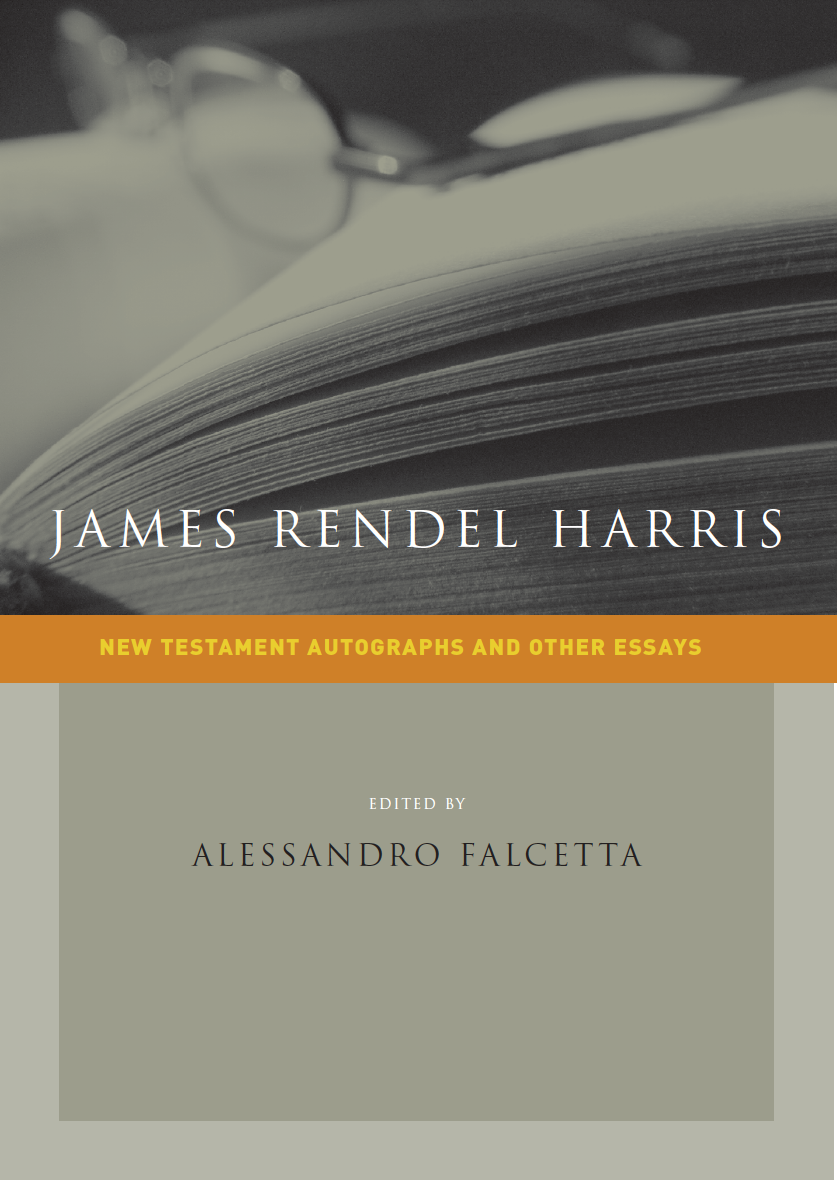
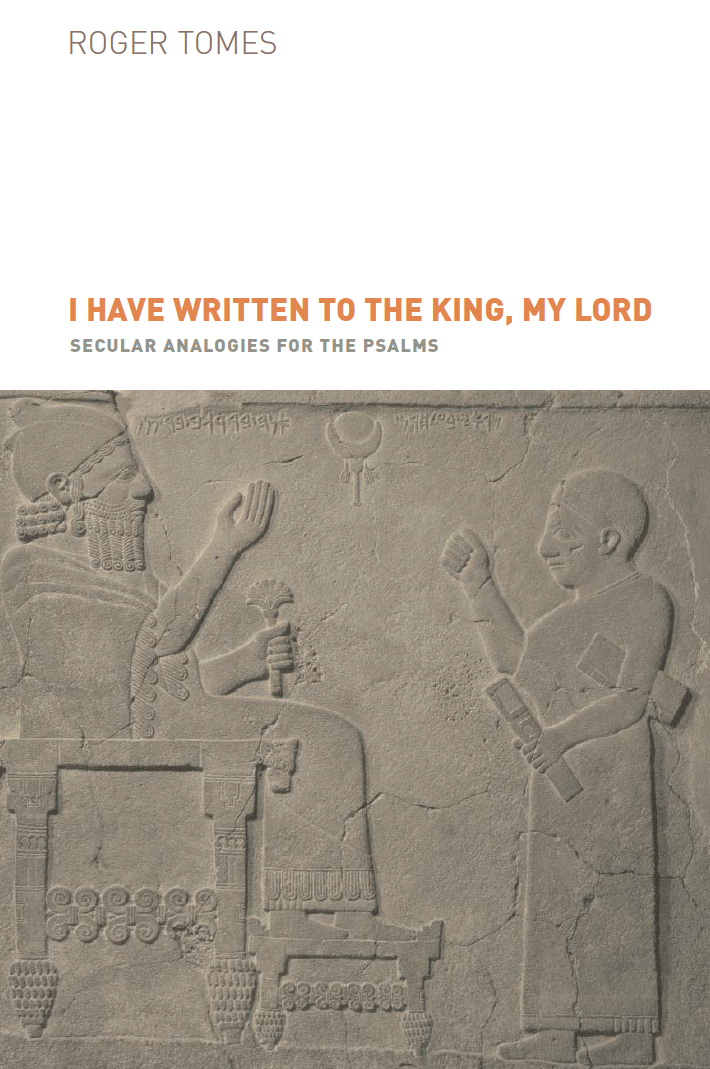





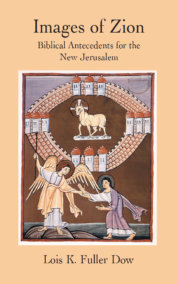

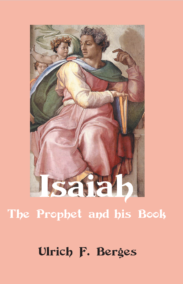


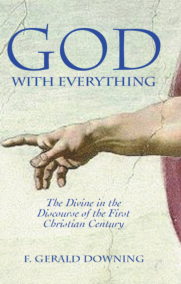

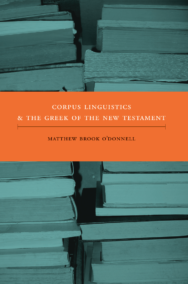
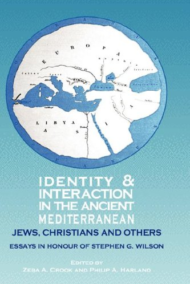

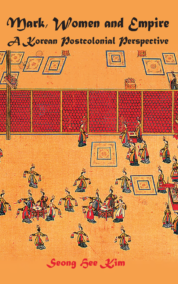
Haggai
Haggai